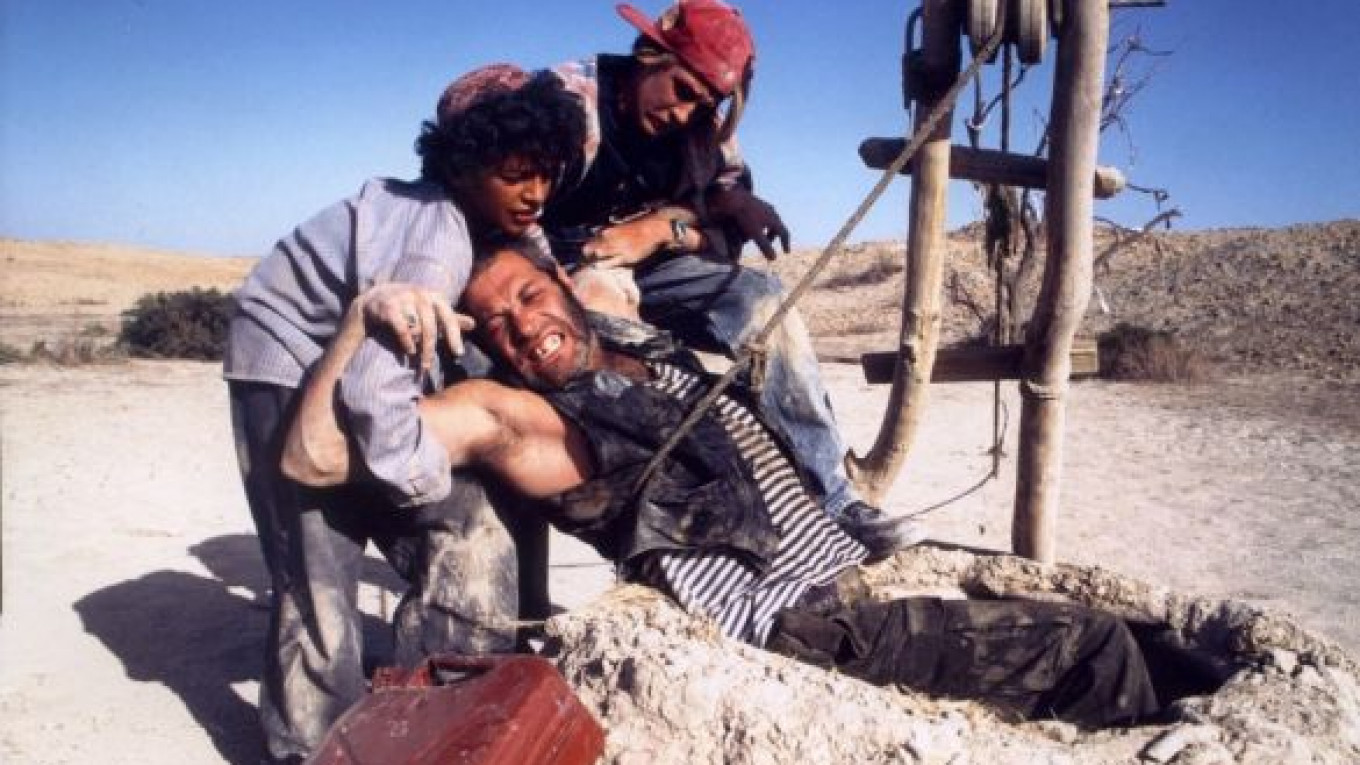If you feel generational conflict with your children, then going together to the Blick'13 Festival of New German Cinema at the Khudozhestvenny Theater might be a good idea. This week, Goethe Institute will present its first festival of German cinema Blick'13, using the timeless theme of "fathers and sons."
The festival's unusual name could be interpreted in several ways. In German, "Blick" means a view, and in Russian — a reflection of light. The program consists of five new documentaries and features with a retrospective of work by German director Arend Agthe, who is well known for his movies about childhood and youth. He will visit Moscow as a special guest of the festival to present his films.
The movies in the fest will focus on generational conflict from many different angles. The idea for the theme came from Wolf Iro, the head of the cultural program at the Goethe Institute in Moscow.
The Goethe institute was founded in 1992 and is one of more than 100 branches around the world, all of which are supported by the German government. There are two branches in Russia: one in St Petersburg and one in Novosibirsk.
Wolf Iro regrets that the institute was not founded earlier — the function of the institute is to build bridges between cultures, a trait that might have been helpful during Soviet times, when relations were worse than now.
Moscow's Goethe Institute has experience in organizing film festivals — they have been cooperating with German Films, the organization that promotes German films abroad, for about 10 years and have now decided to organize their own festival.
"It allows us to bundle films under one particular theme. The other reason is that we want to have a slightly more art-house approach," Wolf Iro said. "It offers particular, artistic individual view of the world. From action films you can't usually expect analytical approach to certain problem."
The main aim of the festival, like the aim of the Goethe Institute, is to promote intercultural understanding and exchange. Iro feels that it is very important for people to look outside of their own spaces and see what other societies are doing. This festival will hopefully help Russians to understand Germany better.
The theme "fathers and sons" was not specifically created as an echo to the famous novel by Ivan Turgenev — however it has many similarities.
The festival will open with the film "Wer Wenn Nicht wir" ("If Not Us, Who?") by Andres Veiel, which won two awards at the Berlin International Film Festival in 2011. Veiel's film describes how the young German generation of the '60s found its own way after Nazism and World War II.
Another film, "This ain't California," will be presented by director Marten Persiel this weekend. The film is a documentary about three high-school guys from East Germany who like skateboarding. Their hobby gradually turns into the first wave of underground culture and the destiny of this trio mirrors the fates of a whole generation and the country that would disappear after the fall of the Berlin Wall.
Another award-winning film from the Berlin film festival, "Oh Boy" depicts the lost generation of '70s and will close the festival here in Moscow. The movie focuses on an aimless young man in his late 20s who cannot seem to find himself in the world and does not understand people. Finally, his girlfriend breaks up with him, friends cease to call, his father stops giving him money and he feels how it is to become an outsider.
Among the many films in the festival, Wolf Iro particularly wants to draw attention to the Arend Agthe retrospective. One of his movies, "Karakum," is a German-Russian co-production and was shot in Turkmenistan. The retrospective also includes two chicken-themed films — Flussfahrt mit Huhn (Traveling on a River with a Chicken) and KЯcken fЯr Kairo (Chickens for Cairo).
"He does not work with cliches," Iro said of Arend Agthe. "His films are dozens of years, old but when you watch them you think that they were made a couple of years ago." Iro explains that Agthe has a different approach to his heroes, showing them as everyman type figures without embellishments or superhero traits.
Wolf Iro hopes the Russian audience, both adults and teenagers, will find the festival interesting, adding that all the movies will be shown in Moscow for the first time.
The most active spectators can win prizes, including German language courses and a trip to Berlin.
The Blick'13 Festival of New German Cinema will run from Nov. 14-20 at the Khudozhestvenny Theater, 14 Arbatskaya Ploshchad, Metro Arbatskaya.
Contact the author at e.nidoev@imedia.ru
A Message from The Moscow Times:
Dear readers,
We are facing unprecedented challenges. Russia's Prosecutor General's Office has designated The Moscow Times as an "undesirable" organization, criminalizing our work and putting our staff at risk of prosecution. This follows our earlier unjust labeling as a "foreign agent."
These actions are direct attempts to silence independent journalism in Russia. The authorities claim our work "discredits the decisions of the Russian leadership." We see things differently: we strive to provide accurate, unbiased reporting on Russia.
We, the journalists of The Moscow Times, refuse to be silenced. But to continue our work, we need your help.
Your support, no matter how small, makes a world of difference. If you can, please support us monthly starting from just $2. It's quick to set up, and every contribution makes a significant impact.
By supporting The Moscow Times, you're defending open, independent journalism in the face of repression. Thank you for standing with us.
Remind me later.






